-
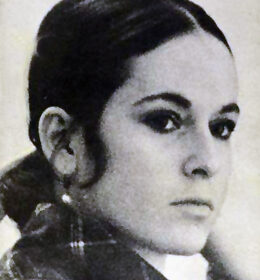
Adios, Louise Glück
THE MOUNTAIN by Louise Glück My students look at me expectantly. I explain to them that the life of art is a life of endless labor. Their expressions hardly change; they need to know a little more about endless labor So I tell them the story of Sisyphus, how he was doomed to push a rock up a mountain, knowing nothing would come of this effort but that he would repeat it indefinitely.Read More
-
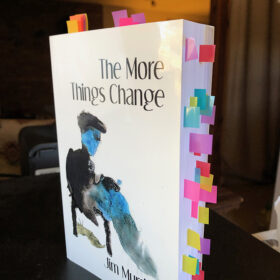
My Pandemic Year in Books
So Many Books, So Little Time I could have sworn that I’d read far fewer books this year than in past years, but it seems not to be so. It must be one of the few benign side effects of the pandemic. Of course, the pandemic has been hard on my writing, poems—at least poems of my kind—seeming fairly pointless amid the waves of infection and death and the tide of fascism rising out of the GOP (the Goosestepping Old Party).Read More
-
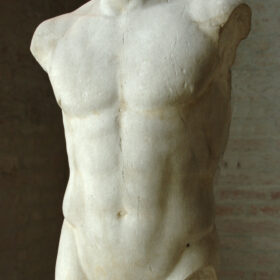
Since I Don’t Speak German…
… I thought I’d try translating Rainer Maria Rilke‘s great poem, “Archaïscher Torso Apollos.” Hey—even our pizza delivery guy has tried his hand at this one! For background, I think the single most interesting, if sometimes oddball, commentaries on translating this poem is this one by Art Beck. He looks are a number of translators’ efforts, including those by J. B. Leishman, M. D. Herter Norton, C. F. MacIntyre, Stephen Mitchell, David Young, Edward Snow, and William Gass—the last for whom Beck reserves his harshest critique.Read More
-
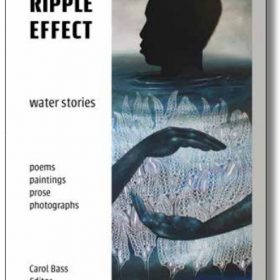
On Carol Bass’s Ripple Effect
Order directly from the publisher or from Amazon. I am blown away. Flummoxed. Exalted! There is a new brilliantaceous star atop my publishing tree this Christmas, thanks to editor, artist, and poet Carol Bass.Read More
-

Poetry Month 2016: Nicky Beer
Marlene Dietrich Reads Rilke on the Lido, 1937 The beach is vulgar, the resort salted like dead fish. The book is not a prop. Strange to be called box office poison in such a poisonous time; she imagines the glass of a ticket booth fogged with a sinister green mist. The latest La Stampa is crumpled at her feet like a cheap towel, a crab dozing on Stalin’s mustache. Since the studios stopped calling, she’s noticed how the headlines crawl with new dread daily: Il Duce preening, Earhart missing, Guernica’s ruins smoking. How elegantly rubble photographs, she half-thinks.Read More
-
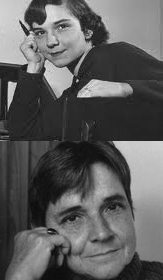
Adios, Adrienne Rich
Adrienne Rich,Early and Late How many thousands pass on every day? How many poets? I don’t have the math skills to figure that one out. All I can say is that many more move “on to the next” without comment from me because, simply put, I don’t know them or their work. Mourning would feel disingenuous. The loss of Adrienne Rich is different. Although I never had the opportunity to meet her, her passing feels personal.Read More
-
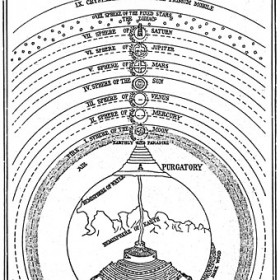
Friday Notebook 11.04.11
There is little in my notebook this week beyond a few stray quotes drawn from my reading and a raw reaction to one of Conrad DiDiodato’s most intriguing blog posts, which needs fleshing out. Let me post my notes on Conrad first: I reread Frank Samperi’s trilogy a few months ago, and it produced a kind of seething in my mind which I recognize in Conrad. His post suffers from a conflation of Language poetry (in the person of Silliman) and the Occupy Movement.Read More
-

The Interpreted World
Israel Rosenfield, in his review of Oliver Sacks‘s The Mind’s Eye: The creation of a coherent environment out of chaotic stimuli is one of the brain’s primary activities. There are no colors in nature, only electromagnetic radiation of varying wavelengths (the visible spectrum is between 390 and 750 nanometers). If we are aware of our “real” visual worlds we would see constantly changing images of dirty gray, making it difficult for us to recognize forms.Read More
-

On Imaginal Space
[This expands on my previous post, which it may help to read first.] I use the word “imaginal” to mean something far beyond the Webster’s definition, “of or relating to imagination, images, or imagery.” I mean it in the sense defined by the great scholar of Islamic mysticism Henry Corbin: …alam al-mithal, the world of the Image, mundus imaginalis: a world as ontologically real as the world of the senses and the world of the intellect, a world that requires a faculty of perception belonging to it, a faculty that is a cognitive function, a noetic value, as fully real…Read More

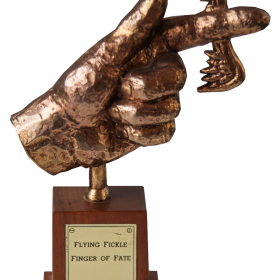
 Joseph Hutchison, Colorado Poet Laureate 2014-2019, has published 20 collections of poems and edited or co-edited three poetry anthologies. He currently directs two master’s-level programs for University College at the University of Denver: Professional Creative Writing and Arts & Culture Management. Joe lives with his wife, Melody Madonna, in the mountains southwest of Denver, Colorado, the city where he was born.
Joseph Hutchison, Colorado Poet Laureate 2014-2019, has published 20 collections of poems and edited or co-edited three poetry anthologies. He currently directs two master’s-level programs for University College at the University of Denver: Professional Creative Writing and Arts & Culture Management. Joe lives with his wife, Melody Madonna, in the mountains southwest of Denver, Colorado, the city where he was born. 









